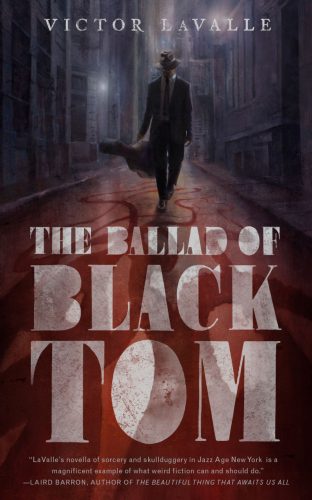Note: Herein begins a series of reviews of books nominated for this years Hugo Awards. For those who don’t know, I will be attending the Hugos this year in Helsinki, Finland, and have more than a little catching up to do in regards to the nominees. I’ve already reviewed a few nominated stories, which will be back-tagged with the Hugo tag, should you be interested in seeing the group together.
When my dad first saw Quentin Tarantino’s Inglorious Basterds, he expressed an emotion that, at first, struck me as odd, but as I thought about it, made a great deal of sense. He found the film deeply cathartic. To watch a group of empowered Jews brutalize Nazis, he said, felt good. Really good.
I thought about that for a long while. The second world war carved a deep wound on the entire world, and the holocaust left horrid scar tissue in my people across the diaspora. We are all affected, generations later, no matter our ties to survivors or victims, no matter our beliefs or shifting religious affiliations. As my father said to me once, during my time as a rather angry atheist in college (I’ve since calmed down), the Nazis wouldn’t have cared what you believed. To them, you are a Jew.
The scars left on a people from having atrocities visited upon them last generations, a metastatic stiffness that has a rippling affect on our capacity for integrating into the world around us. And because humanity displays a tremendous weakness for even short-term memory, the victims of history are often blamed for the cultural wounds that shape our collective neuroses.
And so when my dad saw Inglorious Basterds, he saw a power fantasy for a people disempowered by history, in the heart of the greatest and most terrible robbery of their dignity and humanity. He had a chance to live out a dream he’d never known lived deep in him. Watching the film again, I saw what he meant, and completely agreed.
In many respects, I imagine that The Ballad of Black Tom can foster similar catharsis for black Americans. The protagonist undergoes a transformation through the novella, from a wily young man using ignorance and intolerance to his advantage to a powerful, somewhat divine being visiting destruction on those who robbed him of everything. He plays by the rules, bending and weaving through them as he will, getting slightly ahead in a world that perpetually pushes him behind. When he’s pushed into encounters with the supernatural, the comfortable—if harsh and dehumanizing—world cracks at the seams.
And when his father is executed by police for absolutely no reason, the world shatters and Tommy Tester wonders why the rules mattered at all. No matter what he believed, no matter his actions or efforts, he is subhuman. Second-class and worse. He gives in to the darkness that lingers nearby, reaches for the horror that’s held at bay and wraps himself in it. Then, he finds revenge.
Victor LaValle’s writing is spectacular, harkening to Lovecraft (by whom the story must have been inspired, especially given the presence of Cthulhu) but exceeding it. It fits in with the canonical mythos while proving that Lovecraft’s defects—his intolerance, his bigotry—aren’t what makes his brand of horror great. They detract from it. The scars from the horrors visited upon African Americans are ripe for the kind of horrors these tales visit upon the world. With LaValle’s brilliant novella, we get a taste of how sweet that revenge might be.
The Ballad of Black Tom, published by Tor.com, is available on Amazon.



One Response
Thank you for your insightful review Elan. I’m going to look into finding this book for my library.